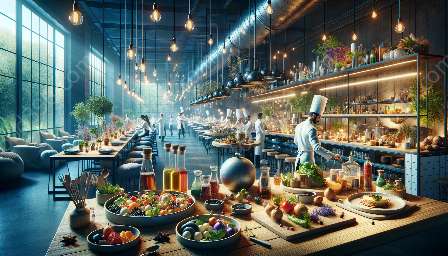Molecular gastronomy is a captivating field that combines science and culinary arts to create innovative and avant-garde dishes. It delves into the chemical and physical transformations that occur during cooking, emphasizing the scientific aspects of food preparation and presentation.
Evolution of Molecular Gastronomy
Originally introduced by Hungarian physicist Nicholas Kurti and French chemist Hervé This in the 1980s, molecular gastronomy has since revolutionized the culinary world. It investigates the mechanisms behind culinary processes, such as cooking, emulsification, gelation, and more, providing chefs with a deeper understanding of the ingredients they work with and the techniques they employ.
Key Principles
The core principles of molecular gastronomy encompass the understanding and manipulation of the physical and chemical transformations that occur during cooking. This involves experimenting with ingredients and techniques to enhance flavors, textures, and presentations.
Interplay with Culinary Arts
Molecular gastronomy intersects with the art of gastronomy in various ways. While traditional culinary arts focus on cooking methods perfected over centuries, molecular gastronomy utilizes modern scientific knowledge to push the boundaries of culinary creativity. It encourages chefs to think critically about the molecular structures of food and how they can be manipulated to create new taste experiences.
Impact on Culinology
Culinology, the blending of culinary arts and food science, is significantly influenced by molecular gastronomy. As culinary professionals seek to develop new food products, molecular gastronomy principles and techniques enable them to innovate and create unique formulations that cater to evolving consumer preferences.
The Future of Modern Cuisine
As the influence of molecular gastronomy continues to grow, it is poised to shape the future of modern cuisine. Its emphasis on scientific experimentation and creativity presents boundless opportunities for chefs and culinologists to revolutionize the culinary landscape, offering extraordinary dining experiences that merge art, science, and gastronomy.


